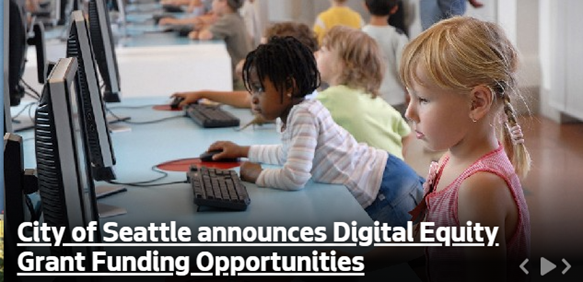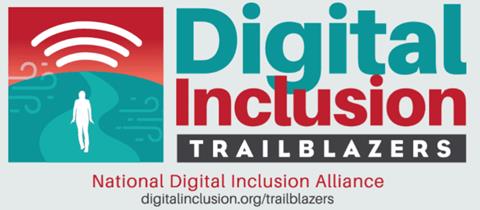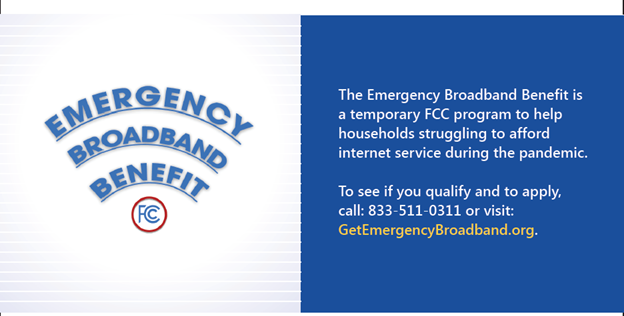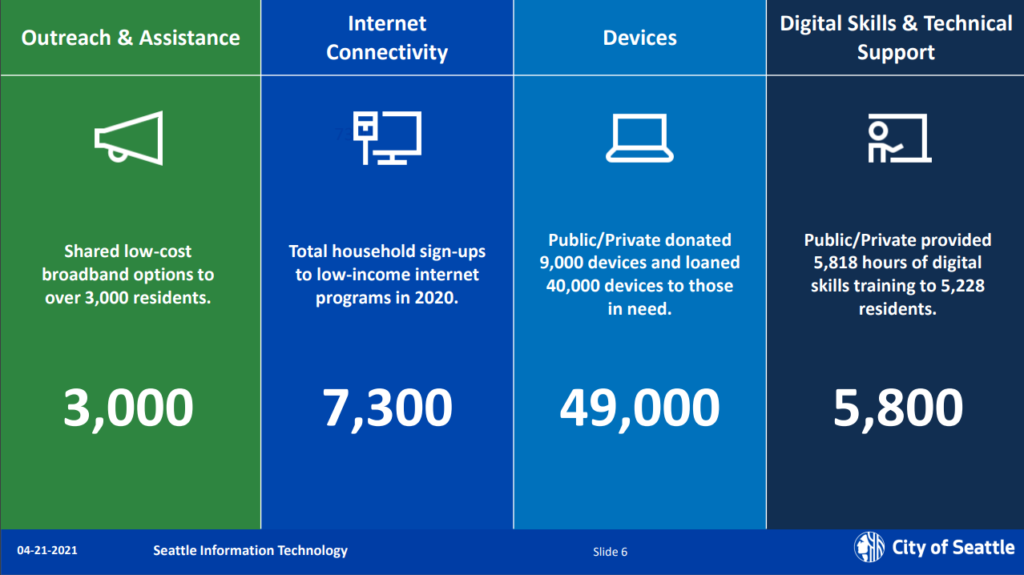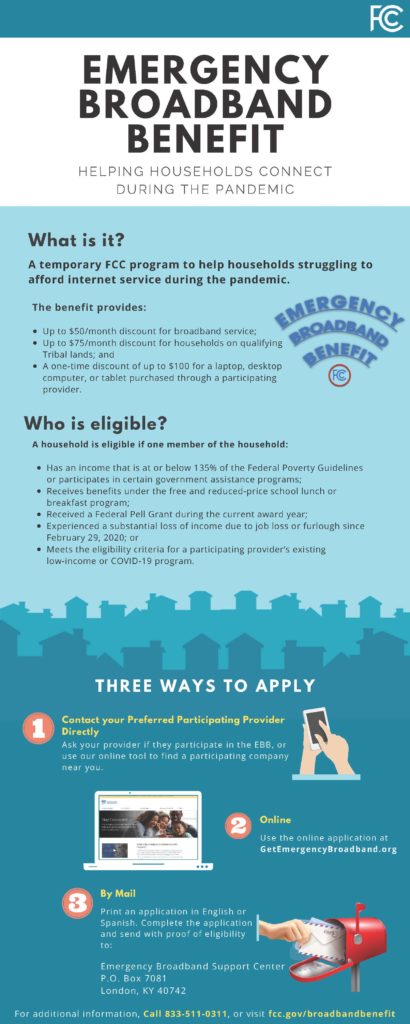City Council unanimously passes “Internet for All” to expand affordable internet access in Seattle (updated)
Original Resolution sponsored by Councilmembers Gonzalez, Juarez, and Pedersen; Action Plan delivered by Seattle’s Information Technology Department
COVID crisis reinforced need for universal broadband access to address inequities

INTRO to “Internet for All”:
This ongoing blog post provides updates on the implementation of the Internet for All Action Plan which was launched the Resolution 31956 adopted by the City Council in 2020.
“In a city that prides itself in leading the world in technology, the COVID crisis has laid bare the inequities and injustice of the Digital Divide. We can no longer allow limited internet access to prevent learning, to impede our workers, or to hinder our small businesses and nonprofits. It’s time to ensure reliable and affordable access to the internet as part of our city’s vital infrastructure for social justice, for education, and for economic development.”
– Councilmember Alex Pedersen
NOVEMBER 14, 2023 UPDATE: Boost to Digital Equity Blocked by City Council’s Budget Committee
With a frustratingly close tie vote, Councilmember Pedersen’s amendment to boost digital equity in Seattle failed at the Budget Committee.
“I appreciate the steadfast support of co-sponsors Lewis and Morales as well as the supportive Yes vote from Councilmember Herbold but, unfortunately, the scare tactics from the executive bureaucracy — which wanted to keep 100% of their extra money for its own vague, internal overhead costs — convinced other Councilmembers to vote No,” said Councilmember Pedersen.
The vote was 4 in favor and 4 against with one abstention and abstentions don’t count, so “when it ties, it dies.” More than 200 constituents sent emails in support of amendment CBO-001-B and no one spoke against it at the public hearing, yet the four Councilmembers still voted No. The amendment would have invested not only $760,000 more for digital equity, but also funds for increased accountability and safety.
Pedersen’s Amendment: Increase Accountability, Equity (digital equity and food security), and Community Safety by slimming down City Hall’s centralized overhead costs: $2 million.
- Expand access to the internet / reduce the “digital divide” as called for by Resolution 31956: $760,000.
- Increase our City Auditor’s Office by 50% because the City Auditor’s Office increases transparency and accountability while finding savings when it recommends efficiencies: $706,000. This amendment is endorsed by the Association of Local Government Auditors.
- Increase support for youth crime intervention initiatives: $300,000.
- Increase support for food banks, such as the Rainier Valley Food Bank: $250,000.
Offsetting Revenue: We would have generated funds by moderating the increase in our city government’s overhead costs (administrative “central services costs”), which the executive branch says it needs to increase above the budget we already endorsed for 2024. Instead of agreeing to increase this bureaucratic internal cost by $17.8 million (for a total of approx. $550 million), we would have simply increased it by a lower amount — and use $2 million in internal savings for the programs to increase accountability, equity, and safety. But the bureaucracy fought to get 100% of their requested increase for their speculative overhead costs by cherry-picking and/or exaggerating doomsday “cuts” that would be imposed. But they already use nearly $550 million (half a billion dollars) and were asking for a $17.8 million increase — after we already endorsed the original 2024 budget just 11 months ago. Our amendment would have granted to them the majority of their requested increase and re-directed less than 1/2 of 1% of the total baseline amount. I believe increasing accountability, digital equity, and food security are too important. The “central services costs” should have been able to make an increase of more than $10 million work, instead of the higher amount they requested. For the full amendment CBO-001-B, CLICK HERE.
MARCH 14, 2022 UPDATE:
Digital Equity Grant Funding Opportunities
Here is a summary from the Mayor’s press release: On March 14, 2022, we announced more digital equity funding opportunities for non-profits who work to close the digital pide in our community. Applications are now being accepted for the 2022 Technology Matching Fund (TMF) grant cycle as well as for the newly created Digital Navigator Cohort that I helped to launch as part of last year’s budget decisions.
This year, $620,000 will be available to community organization’s digital equity projects through Technology Matching Fund grants of up to $25,000 for qualifying non-profit organizations in Seattle.
The new Digital Navigator Cohort Grant program responds to the inequities brought about by the pandemic. Through community conversations, digital navigators emerged locally and nationally as trusted guides to assist in technology support and foundational digital skills. $250,000 has been funded into a cohort of community organizations to be able to offer the digital navigator program through grants of up to $50,000. Unlike the Technology Matching Fund, the Digital Navigator Cohort does not require a community match.
“The Technology Matching Funds and the new Digital Navigator Cohort grants allow our community to continue to flourish with their creativity and innovation. Digital equity is central to my vision for One Seattle where everyone can access the tools and opportunities that ensure no one is left behind,” said Mayor Bruce Harrell.
“We must do more to address the disparities the COVID crisis laid bare in our communities and that includes bridging the digital pide, as called for by our City’s bold Internet for All Action Plan,” said Councilmember Alex Pedersen, who led efforts to have City Hall increase funding for internet access for low-income residents. “Thanks to the groundwork of community groups and Seattle’s IT Department, we can leverage additional funding so that more vulnerable residents have reliable and affordable technology that connects them to education, jobs, health care, and hope.”
The deadline to apply for both funding opportunities is May 13, 2022. To learn more about the Technology Matching Fund, Digital Navigator Cohort, or the new applications system, visit the City of Seattle Digital Equity Funding Opportunities site by CLICKING HERE.
DECEMBER 22, 2021 UPDATE:
Federal Broadband Support: a small piece of Internet for All
In addition to providing funds to expand internet connections in rural areas throughout our country, new legislation adopted by Congress during the Biden Administration will reduce the digital divide by extend subsidies that lower internet costs for consumers. The Federal Communications Commission (FCC) is seeking input on how to implement the new Affordable Connectivity Program (ACP), the low-income broadband program created by the infrastructure bill signed into law November 2021. The new program replaces the Emergency Broadband Benefit (EBB) program that we reported on in a previous newsletter. Over 8 million households nationally and over 13,000 households in Seattle are utilizing the Emergency Broadband Benefit (EBB) to afford essential internet connectivity for participating remote learning, remote work, telemedicine, and social connections
While the EBB paid up to $50 monthly toward the cost of broadband service, the ACP will pay $30 a month toward broadband (with $75 a month in high-cost areas if the broadband provider can demonstrate that the $30 rate would cause economic hardship for the provider). To review the letter your Seattle city government provided to the FCC regarding implementation of the new ACP, CLICK HERE. While initial comments to the FCC were due December 8, the public may reply to comments it sees as late as December 28. For the FCC invitation to comment, CLICK HERE.
NOVEMBER 24, 2021 UPDATE (Budget):
During the October-November 2021 process of amending Mayor Durkan’s final budget proposal for 2022, we achieved only modest success in advancing our Internet for All strategies: we sustained last year’s increase to the Technology Matching Fund, funded deployment of WiFi hot spots at libraries, and supported “Digital Navigators” to increase access to affordable, reliable Internet for jobs, education, and healthcare. It’s not a good sign when we need to beg the Executive to identify in their budget documents what they are actually doing to pursue Internet for All:
“This Statement of Legislative Intent (SLI) [ITD-003-A-001] would request that the City Budget Office (CBO) include in the 2022 Adopted Budget and all future Executive proposed budgets a table reporting on Internet for All and any other digital equity programs that includes, at a minimum, actual expenditures for the previous two years and proposed expenditures (by department) related to the Action Plan requested by City Council in 2020 (pursuant to Resolution 31956) to increase access to and adoption of affordable and reliable internet service.”
We hope for stronger support from the incoming Harrell Administration.
SEPTEMBER 24, 2021 UPDATE:
Discount Internet for Students
School is back in session and I’m sharing news about affordable internet for students. The City of Seattle’s Information Technology department, utilizing the Internet for All plan and Resolution, which I sponsored and the Council passed, emphasized affordability as a major component when it comes to closing the Digital Divide. Through Internet Essentials from Comcast, some students can get home Internet with 2 months without cost, thanks to the Emergency Broadband Benefit which I’ve written about previously. The offer ends June 30, 2022. The Emergency Broadband Benefit is an FCC program to help families and households struggling to afford internet service during the COVID-19 pandemic. This new benefit will connect eligible households to jobs, critical healthcare services, virtual classrooms, and so much more.
JULY 22, 2021 UPDATE:
Internet for All and Winning a Trailblazer Award!
The City of Seattle’s Information Technology department, utilizing the Internet for All plan and Resolution, which I sponsored and the Council passed, earned a Digital Inclusion Trailblazer designation from the National Digital Inclusion Alliance (NDIA).
While our high-tech city needs to do much more to address the digital divide, this Digital Inclusion Trailblazer designation recognizes our important recent efforts — including our Internet for All action plan. Our Internet for All initiative launched last summer spurred additional short-term and long-term efforts to connect low-income residents to affordable and reliable internet so they have access to jobs, education, medical services, and other vital needs. This national recognition confirms Seattle is on the right track and encourages us to achieve greater results from our digital equity network.
To read more click on the following link: City of Seattle named Digital Inclusion Trailblazer – Tech Talk
JUNE 24, 2021 UPDATE:
Internet Access Financial Help
One of the benefits of chairing a Committee that contains the departments focusing on infrastructure is the opportunity to cross-pollinate positive programs. For example, Seattle City Light generously agreed to include this informational insert to all SCL ratepayers about a federal program that helps our Seattle IT Department implement Internet for All: the Emergency Broadband Benefit.
MAY 19, 2021 UPDATE:
Seattle’s Information Technology Department (Seattle IT) updated my Transportation & Utilities Committee on efforts to implement the Internet for All Action Plan. For Seattle IT’s report, CLICK HERE, and for their presentation, CLICK HERE. The theme is that both government and the private sector worked hard to provide additional subsidies and connections to lower income households negatively impacted by the COVID pandemic, but it’s unclear whether those gains will be maintained beyond 2021. Moreover, Seattle IT still has not set up a dashboard (Action Plan recommendation 7.1) to track progress toward implementing Internet for All. “What gets measured, gets done” is a truism that argues for setting up this dashboard sooner rather than later. My office will continue to incentivize Seattle IT to set up the all-important dashboard so everyone can see whether progress from early 2021 will continue.
MAY 13, 2021 UPDATE:
The COVID-19 crisis magnified the disparities in our city along many lines, including access to reliable internet. Last year, my colleagues and I crafted the Internet for All Resolution charting the course for universal internet access in Seattle, so I’m pleased to share news about the FCC’s program which started May 12, the Emergency Broadband Benefit (EBB).
The Emergency Broadband Benefit (EBB) is a temporary FCC program to help families and households struggling to afford broadband internet service during the COVID-19 pandemic.
The Emergency Broadband Benefit provides:
- Up to $50/month discount for broadband service; and
- A one-time discount of up to $100 for a laptop, desktop computer, or tablet purchased through a participating provider if the household contributes more than $10 but less than $50 toward the purchase price.
- The Emergency Broadband Benefit is limited to one monthly service discount and one device discount per household.
Eligible households can enroll through a participating broadband provider or directly with the Universal Service Administrative Company (USAC) using an online or mail in application. You may be eligible if you:
- Participate in an existing low-income or pandemic relief program offered by a broadband provider;
- Are a Lifeline subscriber (including those that are on Apple Health (Medicaid) or accept SNAP benefits);
- Have children receiving free and reduced-price lunch or school breakfast;
- Received a Federal Pell Grand during the current award year; or
- Lost your job and had an income reduction in the last year.
More eligibility information: getemergencybroadband.org/do-i-qualify/ to see if you qualify and to learn more about these programs, visit GetEmergencyBroadband.org or call the national support line at 833-511-0311.
Seattle-specific information: Home and mobile internet service providers offering the EBB discount locally include Comcast (Xfinity), CenturyLink, Wave, AT&T, T-Mobile, Verizon, PCs for People, and Human I-T.
- Current Comcast Internet Essential customers automatically qualify for the EBB program and can enroll directly through the Comcast EBB site.
- Wave Simply Internet and Internet First customers have to first confirm their eligibility through the GetEmergencyBroadband.org national verifier and then have Wave apply the discount. More information is at the Wave EBB site.
- New internet subscribers – or those with other existing services – need to apply to through the GetEmergencyBroadband.org national verifier to confirm eligibility and then work through participating internet providers.
- The internet providers that are offering a laptop, desktop or tablet include T-Mobile, PCs for People, and Human I-T.
To learn more, see this Consumer FAQ or watch this video. Additionally, the Broadband and Digital Equity team in Seattle IT has posted info and links on the City’s low-cost internet page.
For a Seattle Times article, CLICK HERE. For the FCC’s main website on this program, CLICK HERE.
Free Public WiFi Locator Tool: One effort I was happy to see come to fruition with our Internet for All Action Plan was the WIFI locator tool website. It is an interactive site of public facilities which offer free Wi-Fi. Clicking on a location in the map will bring up details, including whether it is set up for interior and/or exterior use.
April 1, 2021 UPDATE:
The City of Seattle today announced the recipients of the 2021 Technology Matching Fund. With an investment of $343,000, 15 organizations will receive funding for community-led projects which aim to increase access to technology and provide digital skills training for underserved communities. The grants range from $11,000 to $25,000, and organizations have pledged a total of $480,795 to match City dollars with at least 50 percent in cash or in-kind contributions of labor, professional services, and donated hardware and software. This year’s recipients will reach more than 2,100 Seattle residents with creative solutions for accessing technology devices, internet connectivity, and digital literacy training. For the annual report on the Technology Matching Fund, CLICK HERE.
“The COVID crisis laid bare the disparities in our communities and magnified the need to bridge the digital divide as called for by our City’s bold Internet for All Action Plan,” said Councilmember Alex Pedersen, who chairs the City’s Transportation and Utilities Committee, which includes technology. “Even as we expand access to the internet throughout Seattle, our Technology Matching Fund continues as a cornerstone of our efforts to connect all our city’s residents to education, jobs, and other vital services.”
September 16, 2020 UPDATE:
Today my Committee heard the presentation on the Internet for All Gap Analysis and Action Plan, which the City Council requested when we adopted Resolution 31956. For the full report CLICK HERE and for the PowerPoint summary, CLICK HERE. To view the video of the Committee meeting, CLICK HERE.
Here’s the press release Council President Gonzalez, Councilmember Juarez, and I distributed with Mayor Durkan:
NEWS RELEASE FROM THE OFFICE OF THE MAYOR
Mayor Durkan and Seattle City Council Release Internet for All Gap Analysis Report with Action Plan to Increase Access to Internet and Close the Digital Divide
SEATTLE (September 16, 2020) – Following up on the Internet for All Initiative announced earlier this summer, Mayor Jenny A. Durkan and Seattle City Councilmembers Lorena Gonzalez, Alex Pedersen and Debora Juarez announced the release of the initial Internet for All Report and Action Plan. Building off of the information gathered as a part of the City’s 2018 Technology Access and Adoption study, this initial Internet for All Report includes a gap analysis of internet, technology and device needs and an Action Plan with eight strategies to close these gaps. The Internet for All Initiative elevates citywide digital equity strategies to increase access to key services and opportunities such as education, job training, unemployment assistance, and resources for those seeking relief during times of crisis.
“We know that access to technology is a race and social justice issue, and the pandemic has further magnified the digital inequities with many in our community lacking the technology and devices need for school or work. The Internet for All Initiative provides the City of Seattle a new roadmap and tangible action plan to close the digital divide and meaningfully increase to both Wi-Fi and devices at this critical time for our City,” said Mayor Jenny Durkan. “I appreciate the leadership of Councilmember Pedersen, Council President Gonzalez, and Councilmember Juarez who co-sponsored the Internet for All Resolution, the full commitment from City Departments, and collaboration with community partners, internet service providers, as well as the business and philanthropic community who have all come together to support this initiative.”
The Internet for All Initiative was launched early this summer to address internet and technology needs and disparities that have been amplified by the COVID-19 crisis. The report includes eight strategies to address this gap in internet skills and access, including recommendations to strategically deploy more public Wi-Fi in digital equity areas by 2021, and foster up to 20,000 internet connections and devices for underserved individuals by 2023. The City will continue to pursue private sector and philanthropic partnerships to expand access to reliable internet and partnering with organizations to deliver culturally relevant digital inclusion programs.
“COVID19 has made it clear that access to the internet is an essential for every household. A lack of internet access exacerbates the challenges of this pandemic: students and their families need reliable connections to participate in virtual classrooms, laid-off workers need internet access to apply for unemployment benefits or search for jobs, and many of our social connections keeping us healthy and connected are primarily online for the foreseeable future,” Said Council President M. Lorena Gonzalez. “Seattle’s elected leaders hold the shared priority of creating more access and equity when it comes to our residents connecting to the internet, and this report lays out a path forward to do so.”
“Seattle is a city that rightfully prides itself on world-class technology, but the COVID crisis has laid bare the inequities and injustices of the Digital Divide,” said Councilmember Alex Pedersen, who chairs the City Council’s Transportation and Utilities Committee, which includes technology matters. “I called for this action plan with my colleagues to achieve Internet for All because we can no longer allow limited access to the internet to prevent learning, to impede our workers, or to hinder our small businesses. It’s time to provide reliable and affordable access to the internet as part of our city’s vital infrastructure for social justice, education, and economic development. This ambitious report from the Mayor and her team, in collaboration with the City Council, spurs Seattle’s long-term efforts to provide affordable and reliable internet to low-income, BIPOC, and all communities, so that we can finally achieve Internet for All.”
“Internet for All affects everyone,” said Councilmember Debora Juarez, co-sponsor of the Internet for All resolution. “A lack of a quality internet connection affects frustrated schoolchildren missing instruction time and compounds the isolation of our seniors. Our city’s economic recovery from this recession will slow if our workforce does not have access to training, cannot research new careers and opportunities, and cannot easily apply to a job. Today’s report further solidifies my commitment to partner with the co-sponsors Councilmembers Pedersen and González and Mayor Durkan to bridge the digital divide.”
“Demand for high-speed broadband has soared to new heights. In today’s digital world, access to affordable internet has become as essential as clean water and electricity. Seattle is leading the way when it comes to digital equity, but there is room for improvement. Through the Internet for All Initiative, Seattle IT is committed to ensuring that there is an equal digital opportunity afforded to every resident in the City of Seattle,” said Saad Bashir, Chief Technology Officer, City of Seattle.
While the City’s 2018 Technology Access and Adoption Study found that 95% of Seattle households are connected to the internet, it also showed that 45% of lower-income households reported that access to the internet in their household was not adequate or only sometimes adequate for their needs. With more and more essential functions moving online, like applying for jobs, searching for healthcare, and attending online classes, access to reliable internet and the skills to use it are more important than ever. The COVID-19 crisis, along with the local and national Black Lives Matter protests, has amplified the need to address digital inequities by increasing access to affordable internet, low-cost devices, and digital skills training.
Additionally, the report finds that rather than being spread out across the City, internet disparities are concentrated geographically in certain areas of the City. The areas of Seattle representing the largest portions of the 5% gap in internet adoption are:
- South Central Seattle (Pioneer Square, Yesler Terrace, and International District)
- South Seattle (New Holly, Rainier Valley, and Beacon Hill)
- West Seattle (High Point and South Park)
- Areas of downtown
- Lake City
You can explore the full report here.
# # #
July 27, 2020: UPDATE:
Press release after unanimous approval of Internet for All Resolution:
SEATTLE – Reinvigorating efforts to pursue universal access to the internet, the City Council approved today the “Internet for All” resolution introduced by Council President M. Lorena Gonzalez (Position 9, Citywide), Councilmember Alex Pedersen (District 4), and Councilmember Debora Juarez (District 5).
The COVID-19 pandemic and the Stay Home, Stay Healthy orders magnified the disparities in our city along many lines, including access to the internet. The resolution adopted by the Council outlines its vision of making broadband internet service accessible, reliable, and affordable to all residents and nonprofits. Increased access to the internet will increase access to key services and opportunities such as education, job training, unemployment assistance, and resources for those seeking relief during times of crisis.
“While Seattle is proud to be a global center of technology and innovation, The COVID-19 pandemic, once again, exposes the reality of extensive, inequitable, and detrimental gaps of the haves and have nots. This time it is manifested via internet access with significant detrimental impact for our students and families at Seattle Public Schools, our seniors, and low-income households,” said Council President M. Lorena Gonzalez. “I’m pleased to be a co-sponsor on the Internet for All resolution to reinvigorate the city’s commitment to closing the digital access gap so everyone can stay connected in an increasingly virtual, online world.”
“Seattle is a city that rightfully prides itself on world-class technology, but the COVID crisis has laid bare the inequities and injustices of the Digital Divide,” said Councilmember Alex Pedersen, who chairs the City Council’s Transportation and Utilities Committee, which includes technology. “We can no longer afford to allow limited access to the internet to prevent learning, to impede our workers, or to hinder our small businesses. It’s time to provide reliable and affordable access to the internet as part of our city’s vital infrastructure for social justice, for education, and for economic development. Passing our resolution today amps up Seattle’s long-term efforts to achieve Internet for All.”
“Today we took a solid step forward,” said Councilmember Debora Juarez. “Inequities in internet access and affordability can lead to disparate outcomes during a crisis, such as reduced access to relief programs for individuals and small neighborhood businesses as well as barriers preventing students from participating in remote learning due to the closures of our schools, libraries, community centers and workplaces. I have long advocated for equity in access by working with groups such as Literacy Source and am pleased to have been a cosponsor on this Resolution.”
While a Technology Access and Adoption Study in 2018 found that 98 percent of households with at least one child who attends Seattle Public Schools have at least one capable internet device, often that access is often only a cell phone. During the COVID pandemic, media reports noted a lack of sufficient access, adoption, reliability, and/or affordability, especially when multiple family members were required to work or study from home. Moreover, seven percent of respondents in that study said they relied on free/public access internet at places such as libraries and community centers, yet those have been closed during the COVID pandemic.
According to 2018 study, those with incomes of less than $25,000 a year are more than three times as likely to rely on a cell phone data plan for internet service. There is low awareness of the discount programs developed for low-income populations — only half know about them and just 23% of low-income households that would qualify for these programs actually use them.
Residents, who are low-income, senior citizens, living with disabilities, or for whom English is not their primary language lag other groups when it comes to access, according to the City’s most recent Digital Equity Progress Report (based on the Technology Access and Adoption Study). The “key risk factors” the report identifies for lack of home internet access are:
- Living in poverty: 5 times less likely to have internet access;
- Household member with a disability: 3 times less likely to have internet access;
- Primary language other than English: 2 times less likely to have access;
- Older adults (65 years old or more): 1.8 times less likely to have access;
- Non-white residents: 1.6 times less likely to have internet access.
“Inequities in internet access can lead to disparate outcomes during a crisis, including reduced access to relief programs for families and reduced access to remote learning for students,” said Caitlen Daniels, President & Chief Executive Officer of the nonprofit Solid Ground whose mission is to “end poverty and undo racism and other oppressions.” “Access to the internet has become a fundamental way people participate in society and civic life. This proposal will move us closer toward equitable internet access. The alternative is reinforcing an immovable barrier thousands of our neighbors face to full participation in communities and full access to community resources.”
“This Internet for All Resolution will speed up chipping away at digital divides that persist in Seattle caused by affordability of home internet, devices, and tech support. Digital inclusion hasn’t yet been fully woven into Seattle’s social support systems and community institutions. Our organization supports on-the-ground practitioners, like the staff of Seattle’s Digital Equity Program. I’m proud that my community has been a leader in the digital equity field for decades. Unlike most cities, Seattle has a digital equity plan. This Resolution opens up that discussion so that the city can reimagine what digital inclusion looks like right now during the pandemic in various departments and act. Now is the time.” said Sabrina Roach, Program Director at the National Digital Inclusion Alliance
“I’m happy to see the City adopt the Internet for All resolution because this is a social justice issue,” said Cat Howell, Educational Director for Literacy Source, an organization providing free learner-centered basic education to low-income adults in the Seattle area. “We see every day the impact of no or limited internet access on the Literacy Source students’ access to education, services, civic participation, employment and many other important parts of our current lives in COVID-19 times.”
This challenging budgetary environment demands an update to the assumptions about financial risk, competitive challenges, economic development benefits, and partnership opportunities to achieve universal broadband. The Internet for All Resolution seeks a comprehensive update, cost estimates, lessons learned from other jurisdictions that have attempted municipal broadband, infrastructure needs, a Race and Social Justice analysis to ensure equitable distribution of the affordable access, and partnerships that can accelerate implementation of the Internet for All Action Plan.
The Resolution requests Seattle’s Information Technology Department to provide its first report to the City Council Transportation & Utilities Committee by September 16, 2020 with existing and short-term solutions to increase access equitably, followed by subsequent reports for the longer term, sustainable solutions of the Action Plan.
# # #
July 13, 2020 UPDATE:
Joining Council President Lorena Gonzalez and me as a co-sponsor of our “Internet for All” Resolution is Councilmember Debora Juarez.
July 2, 2020 UPDATE:
City Council President Lorena Gonzalez joined Councilmember Pedersen to co-sponsor and introduce the Internet For All Resolution. To read the updated Resolution (#31956) as officially introduced, CLICK HERE.
From Councilmember Pedersen: My staff and I have been gathering input on the draft Resolution I announced earlier to pursue Internet for All residents in Seattle.
- A RESOLUTION establishing the City Council’s goal to implement Internet for All Seattle, a vision of enabling all Seattle residents to access and adopt broadband internet service that is reliable and affordable.
We’ve enjoyed connecting with and learning from advocacy groups, national researchers, dedicated employees of our City’s Information Technology Department, and private sector providers of internet services. We are formally introducing the Resolution now. I am very thankful for the support and leadership of co-sponsor Council President Lorena Gonzalez, so we can move forward on this Resolution during these busy times and further address the inequitable Digital Divide in our high-tech city.
May 18, 2020 (ORIGINAL POST):
Councilmember Pedersen Announces Resolution to Launch “Internet for All” to Ensure Affordable Internet Access Throughout Seattle
May 18, 2020 Press Release: SEATTLE – Councilmember Alex Pedersen (District 4, Northeast Seattle), as Chair of the Council’s Transportation and Utilities Committee, has crafted a Resolution charting the course for universal internet access in Seattle. The Resolution requests the city government, led by Seattle’s Information Technology department, to craft an action plan, expand partnerships, and ensure the implementation of Internet for All, so that all Seattle residents have affordable and reliable internet access.
“In a city that prides itself in leading the world in technology, the COVID crisis has laid bare the inequities and injustice of the Digital Divide,” said Pedersen, whose committee includes oversight of Seattle’s Information Technology department). “We can no longer allow limited internet access to prevent learning, to impede our workers, or to hinder our small businesses and nonprofits. It’s time to ensure reliable and affordable access to the internet as part of our city’s vital infrastructure for social justice, for education, and for economic development. It’s time for Internet for All.”
The COVID-19 crisis and the Stay Home, Stay Healthy order magnified the disparities in our city along many lines, including access to broadband internet. Pedersen’s resolution outlines the vision of making broadband internet service accessible, reliable and affordable to all residents and nonprofits. Increased access to the internet will increase access to key services and opportunities such as education, job training, unemployment assistance, and resources for those seeking relief during times of crisis.
“Inequities in internet access can lead to disparate outcomes during a crisis, including reduced access to relief programs for families and reduced access to remote learning for students,” said Caitlen Daniels, President & Chief Executive Officer of the nonprofit Solid Ground whose mission is to “end poverty and undo racism and other oppressions.” “Access to the internet has become a fundamental way people participate in society and civic life. This proposal will move us closer toward equitable internet access. The alternative is reinforcing an immovable barrier thousands of our neighbors face to full participation in communities and full access to community resources.”
While the Seattle’s Technology Access study in 2018 showed overall improvements in internet access, residents who are low-income, senior citizens, living with disabilities, or for whom English is not their primary language, significantly lag other groups when it comes to access. The “key risk factors” the study identifies for lack of home internet access are:
- Living in poverty: 5 times more likely to not have internet access,
- Household member with a disability: 3 times more likely to not have internet access,
- Primary language other than English: 2 times more likely to not have access,
- Older adults (65 years old or more): 1.8 times more likely to not have access,
- Non-white residents: 1.6 times more likely to not have internet access.
According to the same 2018 study, there is low awareness of the discount programs developed for low-income populations — only half know about the programs and just 23% of households that would qualify for them actually use them. Of those 23%, more than half said that the service was too expensive, while 34% cited issues with the quality or speed of their service.
Recent statements in the media reinforce the need to address the digital divide:
- Washington State Superintendent of Public Instruction Chris Reykdal said, “Access to internet is an equity issue for our students and educators, and it is intensified by this crisis.” (Source: Washington State Department of Commerce, May 7, 2020.)
- Seattle Times editorial board writer Jennifer Hemmingsen wrote, “This is a clarifying moment. The closure of schools, workplaces, public libraries and private businesses has pushed the technology gap into stark relief.” (Source: Seattle Times, May 8, 2020).
As we enter a challenging budgetary environment, Pedersen wants to update the assumptions about financial risk, competitive challenges, economic development benefits, and partnership opportunities to achieve universal broadband. Pedersen’s Resolution seeks cost estimates, lessons learned from other jurisdictions that have attempted municipal broadband, infrastructure needs, a Race and Social Justice analysis to ensure equitable distribution of the affordable access, and partnerships that can accelerate implementation of the Internet for All Action Plan.
The Resolution requests Seattle’s Information Technology Department to provide its first report to the City Council Transportation & Utilities (and technology) Committee by September 16, 2020 with existing and short-term solutions to increase access equitably, followed by subsequent reports for the longer term, sustainable solutions of the Action Plan.
Pedersen’s proposed Resolution can be heard in his Transportation & Utilities Committee when the Governor’s order has been lifted for all local governments to consider non-COVID-19 legislation.
For the draft Resolution, CLICK HERE.
# # #
Posted: May 17th, 2021 under Councilmember Pedersen

